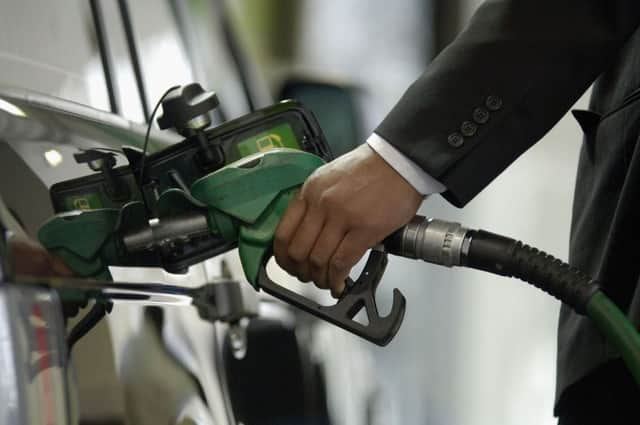Brexit vote '˜added £140 to fuel bills'


It said that had added £142 to annual petrol costs for a two-car family, but a depressed oil price had saved them from a far bigger increase.
The AA said the pound’s exchange rate against the dollar, which oil is traded in, had pushed up pump prices by an average of 5.4p over the last year.
Advertisement
Hide AdAdvertisement
Hide AdHowever, the motoring group said the price of both petrol and diesel had also fallen by around 2p a litre since last month.
The AA said petrol averaged 114.4p across Scotland this week compared in 116p in June, 0.3p below the UK average.
Diesel was down from 117.4 to 115.5p - 0.1p above the UK average.
The motoring group said this had been spurred by price battles between the big four supermarkets - Asda, Morrisons, Sainsbury and Tesco.
The AA said in the year leading up to the EU referendum in June last year, the value of the pound against the dollar averaged $1.49 compared to $1.27 since - nearly 15 per cent less.
AA president Edmund King said: “An extra £140 on a family’s annual petrol costs, courtesy of the weaker pound, has been a heavy burden.
“According to latest Office of National Statistics, it would have paid a fortnight’s housing costs, including rent and power for that family.
“Alternatively, it would have paid for two and a half weeks’ spend on food and non-alcoholic drink.
Advertisement
Hide AdAdvertisement
Hide Ad“However, the impact of sterling’s loss in value would have been far, far worse had the price of oil recovered and the commodity price of fuel with it.
“If the market cost of petrol had returned to the $730 a tonne of June 2015, drivers in October 2016 could have faced paying an extra 12p a litre or £6.60 a tank.
“For many families, that would have crippled their finances and left them once again having to cut back on food and essentials to afford to drive to work.”
Neil Greig, the Scotland-based policy and research director of the IAM RoadSmart motoring group, said: “Fuel prices are, and always will be, a ticking political time bomb. Every government is at the mercy of currency fluctuations, political crisis and even climate-related disasters when it comes to the price of oil.
“Drivers can enjoy the competition for now, but it is almost inevitable that prices will go back up if the world economy picks up.
“The best approach is to plan to always replace your car with a more efficient model and keep an eye on your driving technique and journey necessity.”